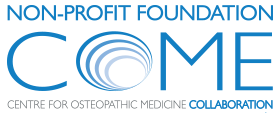Osteopathy modulates brain–heart interaction in chronic pain patients: an ASL study
Abstract
In this study we used a combination of measures including regional cerebral blood flow (rCBF) and heart rate variability (HRV) to investigate brain–heart correlates of longitudinal baseline changes of chronic low back pain (cLBP) after osteopathic manipulative treatment (OMT). Thirty-two right-handed patients were randomised and divided into 4 weekly session of OMT (N = 16) or Sham (N = 16). Participants aged 42.3 ± 7.3 (M/F: 20/12) with cLBP (duration: 14.6 ± 8.0 m). At the end of the study, patients receiving OMT showed decreased baseline rCBF within several regions belonging to the pain matrix (left posterior insula, left anterior cingulate cortex, left thalamus), sensory regions (left superior parietal lobe), middle frontal lobe and left cuneus. Conversely, rCBF was increased in right anterior insula, bilateral striatum, left posterior cingulate cortex, right prefrontal cortex, left cerebellum and right ventroposterior lateral thalamus in the OMT group as compared with Sham. OMT showed a statistically significant negative correlation between baseline High Frequency HRV changes and rCBF changes at T2 in the left posterior insula and bilateral lentiform nucleus. The same brain regions showed a positive correlation between rCBF changes and Low Frequency HRV baseline changes at T2. These findings suggest that OMT can play a significant role in regulating brain–heart interaction mechanisms.







